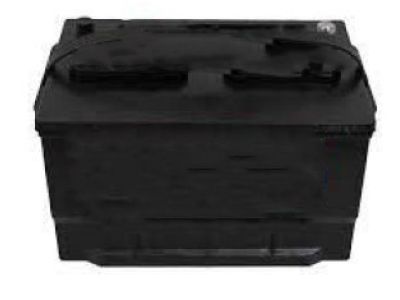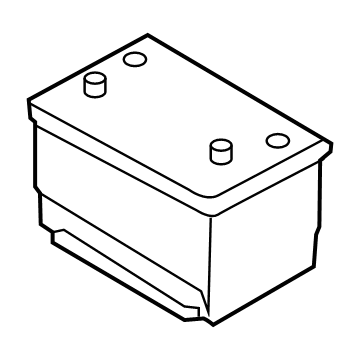FordParts
My Garage
My Account
Cart
OEM 2003 Lincoln Aviator Car Batteries
Auto Battery- Select Vehicle by Model
- Select Vehicle by VIN
Select Vehicle by Model
orMake
Model
Year
Select Vehicle by VIN
For the most accurate results, select vehicle by your VIN (Vehicle Identification Number).
1 Car Batteries found

2003 Lincoln Aviator Battery Part Number: BXT-65-650
$183.53 MSRP: $199.95You Save: $16.42 (9%)Product Specifications- Other Name: Vehicle Battery
- Condition: New
- Fitment Type: Direct Replacement
- SKU: BXT-65-650
- Warranty: This genuine part is guaranteed by Ford's factory warranty.
2003 Lincoln Aviator Car Batteries
If you're seeking quality and affordability, look no further than our extensive inventory of genuine 2003 Lincoln Aviator Car Batteries available at FordPartsDeal.com. You can confidently purchase our OEM 2003 Lincoln Aviator Car Batteries as they are supported by the manufacturer's warranty and our hassle-free return policy, alongside the benefit of our fast delivery service.
2003 Lincoln Aviator Car Batteries Parts Q&A
- Q: What Safety Precautions Should Be Observed When Servicing Car Batteries on 2003 Lincoln Aviator?A: Observing safety precautions becomes essential during battery service because explosive gases generate threats to personal safety thus maintain a safe distance from both flames and sparks along with closed lights besides shielding your face and protecting your eyes and providing adequate ventilation. Dismantling the battery ground cable to deplete back up power supply for one minute should happen before beginning air bag SRS component repairs or side or front sensor work anytime the battery ground cable is not connected. This process also includes disconnecting auxiliary battery power and supply systems if present. You must either use a battery carrier or lift by opposite corners when moving batteries to stop acid from leaking through vent caps and you should always maintain battery safety for children because sulfuric acid exists within cells and any acid contact requires immediate water flushing for 15 minutes followed by medical help if needed. The vehicle may develop unusual operational behavior during adaptive strategy relearning when the battery is interconnected and disconnected. Partial driving of the car might be needed to finish this relearning process. The reconnection process must start by following the order of component disconnect.







